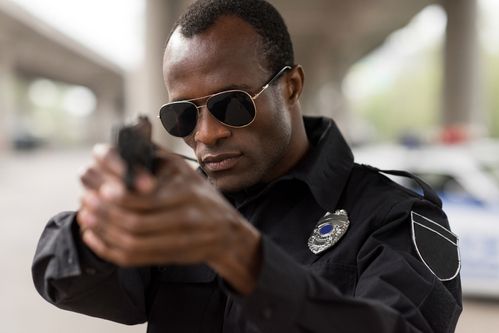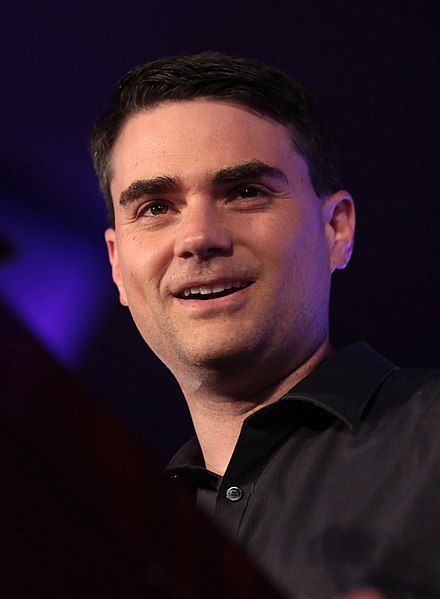When Black Police Officers Kill a Black Man, That's White Supremacy

By Ben Shapiro
This week, tape emerged from Memphis, Tennessee of five black police officers engaging in the beating of Tyre Nichols, a 29-year-old black man. Nichols was pulled over for reckless driving according to the officers; they ordered him to get on the ground and to give them his hands; he did not comply and instead began to run. When the officers caught up with him, they pummeled him, complete with strikes to the head while his hands were being held behind his back. Nichols died in the hospital.
The five officers involved were charged with second-degree murder, kidnapping, official misconduct and official oppression. All were fired from the police department.
The national media coverage was swift -- and confused. For some in the media, the narrative was clear: the police are generally brutal, and thus must be dramatically curbed. "The issue here, as plenty of people have pointed out, is not black versus white, it's blue versus the rest of us," said MSNBC's Mehdi Hasan. "You can't reform this stuff with body cameras or diversifying the police, as we just saw in Memphis." Instead, Hasan suggested, abolition of the police might be a possible solution.
This solution, of course, is no solution at all: Memphis has one of the highest crime rates in the United States. According to Neighborhood Scout, the chances of becoming a victim of violent or property crime in the city are one in 12. And we know with statistical near-certainty that high-profile cases of police misconduct generally result in police stand-downs -- which in turn result in more crime. As professors Tanaya Devi and Roland Freyer found in 2020, "all investigations that were preceded by 'viral' incidents of deadly force have led to a large and statistically significant increase in homicides and total crime."
A second media narrative quickly emerged from the Nichols killing: despite the fact that all involved were black, that the Memphis Police Department is majority black, that the chief of police is black -- the killing was a result of "white supremacy." The Washington Post headlined, "Black Memphis police spark dialogue on systemic racism in the US." Van Jones opined at CNN.com, "The police who killed Tyre Nichols were Black. But they might still have been driven by racism." Kimberle Crenshaw, founder of intersectionality, explained, "One cannot imagine this happening in a well-heeled white community. That is a racial problem that the law has consistently said is a non-problem."
This narrative, like the first, is designed to avoid solutions. If all policing is the result of structures of white supremacy, the only answer is to abolish policing. If each individual instance of police brutality, no matter the race of the officers, is an example of racism, then the only way to alleviate police brutality is by completely restructuring American society -- which is just what those like Crenshaw propose. The result won't be a safer America, but a much less safe and more fractious one.
In reality, instances of police brutality cross races. Whether it's Daniel Shaver being shot to death in a hotel while attempting to comply with police demands in 2016 or whether it's two Arkansas Sheriff's Deputies beating Randal Worcester in August 2022, white victims of police brutality aren't hard to find. Some police brutality can undoubtedly be curbed by better recruitment and training. But if we wish to actually lower the number of encounters between a given population and the police, thus reducing the number of possible violent interactions, the most obvious method would be to reduce criminal activity -- which requires more policing and more law-abiding behavior.
None of this should be controversial. But solutions aren't what advocates of police abolition or critical race theory are looking for. They're looking for revolution. And all revolutions have casualties.
This week, tape emerged from Memphis, Tennessee of five black police officers engaging in the beating of Tyre Nichols, a 29-year-old black man. Nichols was pulled over for reckless driving according to the officers; they ordered him to get on the ground and to give them his hands; he did not comply and instead began to run. When the officers caught up with him, they pummeled him, complete with strikes to the head while his hands were being held behind his back. Nichols died in the hospital.
The five officers involved were charged with second-degree murder, kidnapping, official misconduct and official oppression. All were fired from the police department.
The national media coverage was swift -- and confused. For some in the media, the narrative was clear: the police are generally brutal, and thus must be dramatically curbed. "The issue here, as plenty of people have pointed out, is not black versus white, it's blue versus the rest of us," said MSNBC's Mehdi Hasan. "You can't reform this stuff with body cameras or diversifying the police, as we just saw in Memphis." Instead, Hasan suggested, abolition of the police might be a possible solution.
This solution, of course, is no solution at all: Memphis has one of the highest crime rates in the United States. According to Neighborhood Scout, the chances of becoming a victim of violent or property crime in the city are one in 12. And we know with statistical near-certainty that high-profile cases of police misconduct generally result in police stand-downs -- which in turn result in more crime. As professors Tanaya Devi and Roland Freyer found in 2020, "all investigations that were preceded by 'viral' incidents of deadly force have led to a large and statistically significant increase in homicides and total crime."
A second media narrative quickly emerged from the Nichols killing: despite the fact that all involved were black, that the Memphis Police Department is majority black, that the chief of police is black -- the killing was a result of "white supremacy." The Washington Post headlined, "Black Memphis police spark dialogue on systemic racism in the US." Van Jones opined at CNN.com, "The police who killed Tyre Nichols were Black. But they might still have been driven by racism." Kimberle Crenshaw, founder of intersectionality, explained, "One cannot imagine this happening in a well-heeled white community. That is a racial problem that the law has consistently said is a non-problem."
This narrative, like the first, is designed to avoid solutions. If all policing is the result of structures of white supremacy, the only answer is to abolish policing. If each individual instance of police brutality, no matter the race of the officers, is an example of racism, then the only way to alleviate police brutality is by completely restructuring American society -- which is just what those like Crenshaw propose. The result won't be a safer America, but a much less safe and more fractious one.
In reality, instances of police brutality cross races. Whether it's Daniel Shaver being shot to death in a hotel while attempting to comply with police demands in 2016 or whether it's two Arkansas Sheriff's Deputies beating Randal Worcester in August 2022, white victims of police brutality aren't hard to find. Some police brutality can undoubtedly be curbed by better recruitment and training. But if we wish to actually lower the number of encounters between a given population and the police, thus reducing the number of possible violent interactions, the most obvious method would be to reduce criminal activity -- which requires more policing and more law-abiding behavior.
None of this should be controversial. But solutions aren't what advocates of police abolition or critical race theory are looking for. They're looking for revolution. And all revolutions have casualties.

Ben Shapiro, 38, is a graduate of UCLA and Harvard Law School, host of "The Ben Shapiro Show," and co-founder of Daily Wire+. He is a three-time New York Times bestselling author; his latest book is "The Authoritarian Moment: How The Left Weaponized America's Institutions Against Dissent." To find out more about Ben Shapiro and read features by other Creators Syndicate writers and cartoonists, visit the Creators Syndicate website at www.creators.com
Recent
The Heart of the Matter Is the Matter of the Heart
February 14th, 2026
People of Color can also steal…Duh?
February 14th, 2026
The Monroe Doctrine Isn’t Outdated — It’s Vital for American Security
January 5th, 2026
Defining Racism “UP”
January 4th, 2026
The Voting Rights Act Should Protect Voting—Not Perpetuate Fear
January 4th, 2026
Archive
2026
2025
February
March
July
September
October
November
2024
January
Cartoon 01/01/24Cartoon 01/02/24Claudine Gay Betrayed the American Values of My Black Elders to Exploit White GuiltCartoon 01/03/24Cartoon 01/05/24Cartoon 01/06/24Cartoon 01/07/24Cartoon 01/08/24We need a David, not a SaulCartoon 01/13/24Cartoon 01/09/24Cartoon 01/10/24Cartoon 01/11/24Cartoon 01/14/24Cartoon 01/12/24What Happens to a King Deferred? A ReduxCartoon 01/15/24Cartoon 01/16/24The Good Guys with Guns Part 1Cartoon 01/17/24America Works. DEI Doesn’t.Cartoon 01/18/24Cartoon 01/23/24Good Guys with Guns Part 2Cartoon 01/19/24Cartoon 01/21/24Cartoon 01/22/24Cartoon 01/24/24Cartoon 01/26/24Cartoon 01/25/24Cartoon 01/27/24
February
Cartoon 02/04/24Cartoon 02/03/24Cartoon 02/02/24Cartoon 02/01/24Cartoon 01/31/24Cartoon 01/28/24Cartoon 01/29/24We’ve Been Gay(ed) Part 1Cartoon 02/05/24Cartoon 02/06/24Cartoon 02/07/24Cartoon 02/08/24Cartoon 02/13/24Cartoon 02/12/24Cartoon 02/09/24Cartoon 02/11/24Cartoon 02/10/24Cartoon 02/19/24'Black America at Crossroads’ of Culture Wars as Presidential Election LoomsWe’ve Been Gay(ed) Part 2Cartoon 02/18/24Cartoon 02/17/24Cartoon 02/16/24Cartoon 02/15/24Cartoon 02/14/24Cartoon 02/22/24Cartoon 02/21/24Cartoon 02/20/24America Needs a “Black Wives Matter” Movement To Rebuild the Black FamilyCartoon 02/23/24Cartoon 02/24/24Cartoon 02/25/24Cartoon 02/26/24Cartoon 02/27/24

No Comments